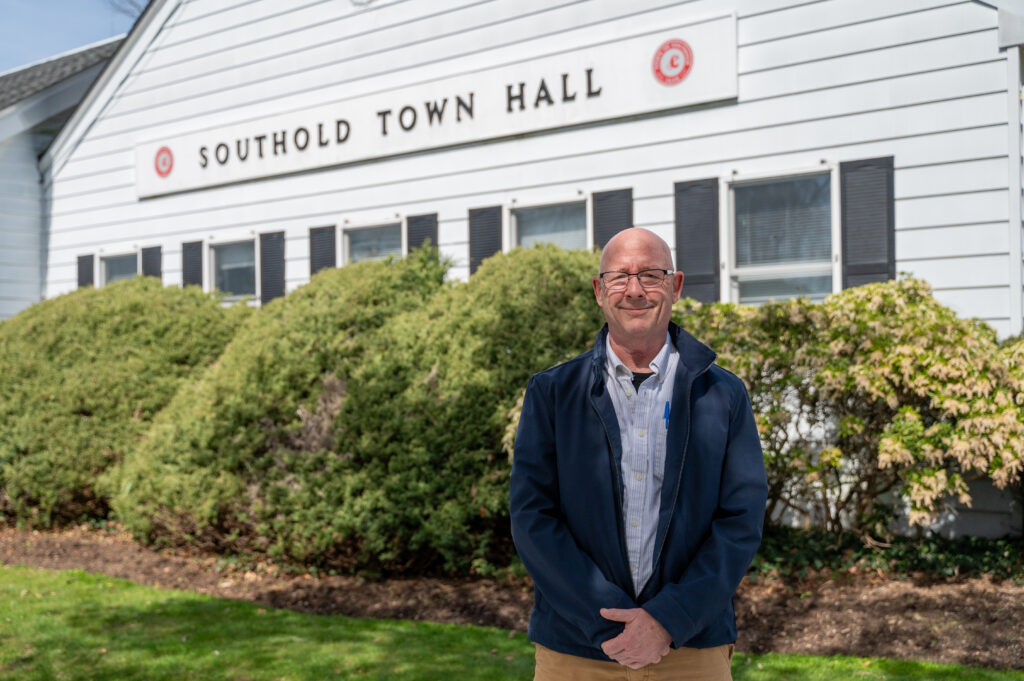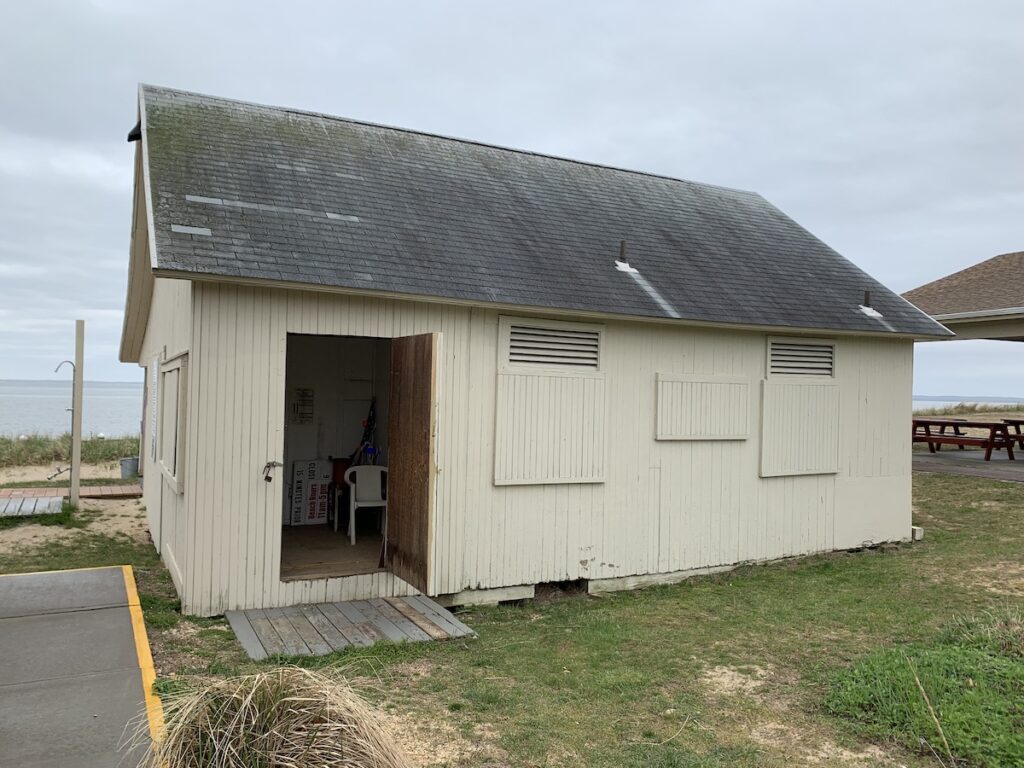Guest Spot: Let’s get rid of the polluting leaf blowers

It is really hot. Many of us remember when no one had an air conditioner — or at least where I’ve lived in Greenport almost no one did. There might be a window unit for the odd very hot summer night. But with the water nearby, it was never that hot.
Recently, 200 million Americans were under a heat advisory. Drought is affecting nearly half of the U.S., devastating crops and the cattle industry. The fires on the West Coast, seen from a satellite, apparently look a little like Armageddon. The smoke from California — which has the toughest air-quality control regulations in the U.S. — is reaching Denver and Salt Lake City, causing schools to close and team sports to be canceled.
An entire Greek island, where shepherds have watched their flocks by night for thousands of years, is on fire. A hotter atmosphere absorbs more water, and unprecedented rainstorms in northern Germany created flash floods that nearly erased several villages, taking 160 lives.
Which brings me to leaf blowers. Last week, the United Nations released a report pulled together by scientists from 195 countries that says the world has gotten a lot hotter — two degrees since the 19th century — and it is slated to go up even more than that amount by this century’s end. (The resulting melting glaciers will likely cause sea level to rise two or three feet in the next several decades.)
The main culprit is growing amounts of carbon dioxide in the earth’s atmosphere, which captures the sun’s heat rather than reflects it. The report urges us all to immediately begin to limit the use of fossil fuels wherever we can, as the world community works to eliminate them entirely.
Most of us can can’t go out and buy an electric car immediately, but what about calling off the leaf blowers that have invaded our once quiet towns like a plague of (very noisy) locusts. When did we start vacuuming our lawns? And why do we do it? Or should I say, why do we hire young men shouldering 10- to 24-pound, double-stroke combustion engines to “dust” our grass and garden beds and sidewalks to make them as tidy as grandma’s china closet? Nature and the outdoors are not supposed to be like living rooms. Nature may be beautiful, but she is not a neatnik.
It is great that Southold Town Board has responded to the growing noise complaints about the epidemic of leaf blowers and voted unanimously to limit their hours of use. I, for one, am thrilled that I will be able to listen to a cardinal argue with a robin on Sunday morning rather than the irritating, high-decibel whine of a leaf blower.
But folks, this is just the tip of a quickly melting glacier.
Double-stroke engines like those in leaf blowers are so dirty that they are banned in India! This old-fashioned engine sloshes gasoline and oil together in its combustion chamber, then coughs out one-third of it unused as an aerosol. One study compared a leaf blower’s exhaust with the hydrocarbons emitted by a pickup truck, and found the blower is 93 times worse. (So drive your pickup and get rid of your leaf blower!) And then there’s this: In 2017, the California Air Resources Board warned that by 2020, gas-powered leaf blowers, lawn mowers and other landscape-service equipment in California would produce more ozone pollution than the millions of cars on the state’s highways. Two-stroke engines make cars look clean!
But that’s not all. When leaf blowers “blow,” they generate wind speeds of around 200 miles per hour, stirring up pesticides, heavy metals, mold, animal feces and pollen. There’s also often residue on the ground from home renovations, which includes lead paint and asbestos shingle chips — which definitely should be allowed to R.I.P. Applying a leaf blower’s hurricane force winds to this stuff is not a good idea. Additionally, the microscopic particles in the dust clouds from a blower can take hours to settle and so stir up allergies and asthma, and even do damage to our respiratory systems.
That endless drone is also a health hazard. At 50 feet away, it’s like having a washing machine running beside you; that is, 60 to 78 decibel levels, according to government findings. Sound at this level is stress-inducing and headache-producing. And what if it’s outside your kitchen window? Or on your shoulder for 10 hours a day? Now we are talking about the hearing-damaging territory of 100 decibels.
A neat lawn may make us feel we are in control in a world that often feels wildly out of control. But sailors and gardeners, farmers and fishermen, know you can never really dominate nature. Instead, you learn to respect her strength and work with her. Farmers and gardeners study nature to figure out what she needs and respectfully provide it in order to harvest her gifts. Sailors and fishermen study the wind and currents, and respectfully adjust to harness their power.
Nature has worked out that grass clippings are good compost — and can actually help keep moisture in the ground during heat waves. (Whatever lands on garden beds disappears in a few days.) And a broom can remove grass from walkways every bit as efficiently and even more neatly than a 24-pound piece of polluting machinery.
The excessive heat, droughts, fires, earthquakes and crazy wind and rainstorms do seem to be nature and our planet saying: “Hello, humanity, I am talking to you! Your lack of respect for me and what I need to do what I do is starting to make me mad. And believe me, you do not want to get into a test of strength, because I can show you who will win.”
I do wonder if isn’t time for all of us to shoulder some of the responsibility for a warming planet by removing the leaf blowers from shoulders.
The author lives in Greenport.








